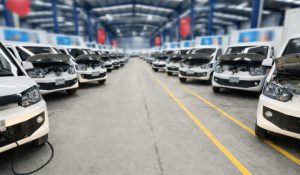
Transport and Social Change are Shaping Mobility in Europe

Across Europe, transport and social change are transforming how people move—not just through technology, but through shifts in public attitudes and values.
While electric and autonomous vehicles offer sustainability and efficiency, the rise of shared mobility and MaaS services reveals something deeper: people increasingly care about getting where they need to go, not about owning a car. In this context, transport and social change are emerging as the true engines of progress.
Read more: Cities on the Move: Keys from Spain for Sustainable Mobility in Latin America.
Transport and social change redefine mobility needs
Apps like Uber, e-bikes, and scooters are reshaping urban mobility. The traditional car is no longer seen as a symbol of status, especially among younger generations. Transport and social change have led to a drop in driver’s license registrations and sparked a cultural shift away from car ownership toward access-based alternatives.
The “peak car” phenomenon shows that mobility choices now depend more on convenience, sustainability, and personal values than on possession. Cost, environmental concerns, and ease of use guide decisions far more than horsepower or brand.
Technology alone is not enough
Although electric vehicles have gained popularity, concerns remain about cost, charging infrastructure, and range anxiety. Autonomous vehicles, too, face ethical and legal uncertainties. This means transport and social change must go hand in hand—technology needs to adapt to human realities.
Mobility systems must also be inclusive. Not everyone lives in a city or has access to public or shared transport. Families, the elderly, and rural communities still depend on private vehicles. To succeed, future mobility must guarantee equity, access, and trust.
People at the heart of the mobility revolution
For transformation to succeed, collaboration is key. Governments, private companies, and civil society must align efforts. Transport and social change will only thrive if solutions are designed around people’s real lives—by improving digital literacy, expanding access, and listening to users’ needs.
The mobility revolution in Europe is underway, but its future depends on one essential condition: putting people—not machines—at the center.





